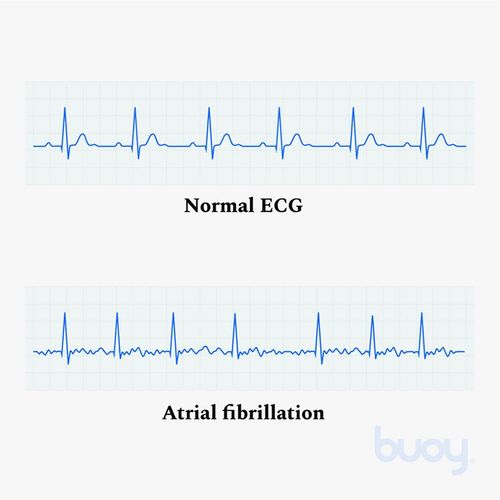A "pill-in-the-pocket" self-treatment program can reduce emergency room visits and hospitalizations by nearly 90% for people who have atrial fibrillation, a type of heartbeat abnormality, according to the results of a recent study.
The Study
In this Italian study, 210 patients who had a mild version of atrial fibrillation and no complicating conditions were trained to take a pill when they first felt symptoms of an attack.
The medications that were used-flecainide or propafenone_help restore a normal heart rhythm and are commonly administered as a treatment for atrial fibrillation.
Results
Among the people studied, emergency room visits dropped from an average of 45.6 per month in the year before self-treatment began to 4.9 per month following the self-administered therapy.
The number of hospitalizations also declined, from an average of 15 per month to only 1.6 per month.
A total of 618 episodes of atrial fibrillation were reported by 165 of the patients participating in the study. Of those episodes, 569 were treated by the patients themselves, with a success rate of 94%.
Only 12 participants reported adverse effects from self-treatment during one or more episodes of atrial fibrillation, the report says.
Benefits For Limited Population
"This is a very large study that, for the first time, gets a handle on how this approach can be used to treat patients with atrial fibrillation," says Dr. Kenneth A. Ellenbogen, professor of medicine at Virginia Commonwealth University and a spokesman for the American Heart Association.
The self-treatment method is being used increasingly in the US, he adds. But only approximately 10% to 20% of people who experience atrial fibrillation are eligible for the drugs, because other medical conditions may prevent their use.
Atrial fibrillation is such a huge and pervasive problem that using it on 10% to 20% of (patients) can have a huge impact," says Dr. A. Marc Gillinov, surgical director of the atrial fibrillation program at the Cleveland Clinic Heart Center.
What Is Atrial Fibrillation?
An estimated 2.2 million Americans have Aatrial fibrillation, in which the upper chambers of the heart periodically experience an abnormal rhythm that reduces their ability to pump blood. That number is growing by 150,000 to 200,000 every year as the US population ages.
Feeling a Flutter?
Just about everyone has experienced a "fluttering" or the sensation that their heart was "skipping a beat."
This can be a sign of arrhythmia, or irregular heartbeat, according to the American Heart Association.
Don't panic if you've occasionally felt this. Arrhythmias are extremely common, especially as people get older.
Most cases are harmless, but some arrhythmias are serious and require treatment and management. Your doctor can tell the difference.
If your arrhythmia needs treatment, your doctor can prescribe medication.
You also may be encouraged to avoid substances including caffeine, tobacco, alcohol, cold and cough medications, appetite suppressants, beta-blockers and psychotropic drugs used to treat certain mental illnesses.
